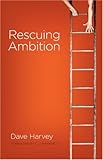Josh Harris, in Dug Down Deep: Building Your Life on Truths That Last:
Being a Christian means being a person who labors to establish his beliefs, his dreams, his choices, his very view of the world on the truth of who Jesus is and what he has accomplished—a Christian who cares about truth, who cares about sound doctrine.
